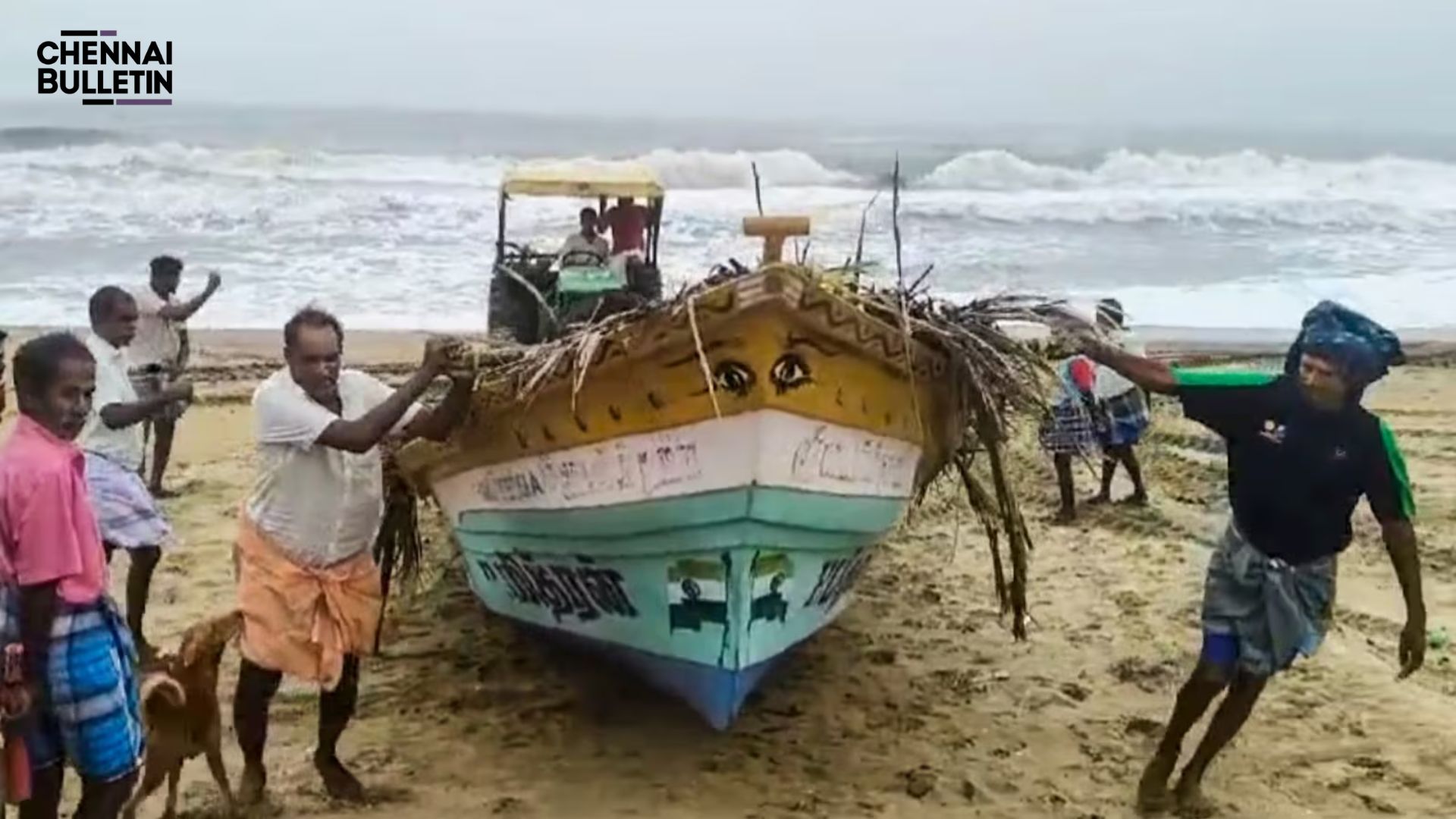Cyclone Fengal made landfall on Saturday evening over the northern coastal regions of Tamil Nadu and Puducherry. The cyclone caused heavy rainfall and strong winds in the area. The India Meteorological Department (IMD) provided updates on the cyclone’s status throughout the night. Despite forecasts, the storm resulted in significant disruptions across the region.
Cyclone’s Impact:
According to the IMD, Cyclone Fengal was stationary around midnight. The storm was centered over northern Tamil Nadu and Puducherry. Wind speeds ranged from 65 to 75 km/h, with gusts reaching up to 85 km/h. By 3 am Sunday, the IMD indicated that the cyclone would weaken into a deep depression by 6 am. Despite this prediction, the cyclone brought considerable challenges to the area. Authorities have remained vigilant, closely monitoring the evolving situation.
As Cyclone Fengal moved inland, it unleashed heavy rainfall throughout northern Tamil Nadu and Puducherry. This intense rain resulted in waterlogging and widespread disruptions. Chennai Airport had to suspend operations temporarily due to flooding on two runways and a taxiway. This closure lasted until 4 am on Sunday. The suspension led to significant travel chaos in the region. In total, 55 flights were canceled, and 19 others were diverted. Additionally, 12 other flights faced delays, affecting both domestic and international travel.
Tragic Consequences:
The storm’s impact tragically affected lives. In Chennai, three individuals lost their lives due to electrocution in separate incidents related to the rain. One victim was a migrant worker who was electrocuted while trying to withdraw money from an ATM. His body was later discovered floating nearby. The authorities have expressed deep concern about the heightened risk of accidents during heavy rainfall. This risk is particularly concerning in urban areas that struggle with poor drainage systems.
Government Response and Assessment:
Despite the storm’s intensity, KKSSR Ramachandran, Tamil Nadu’s Minister for Revenue and Disaster Management, reported no immediate reports of major structural damage. He emphasized the importance of conducting detailed assessments of the cyclone’s impact on Sunday. Local authorities have been on high alert throughout the storm, monitoring conditions closely. They are committed to providing assistance to those affected by the heavy rain and strong winds.
Aftermath of the Cyclone:
As Cyclone Fengal weakens, the region faces the challenges left in its wake. The flooding and disruption of infrastructure remain pressing concerns. Residents must now deal with the consequences of the storm’s devastation. Safety has become a significant issue. Authorities are urging individuals to remain cautious and vigilant during this recovery period.
Reflections on Vulnerability:
The cyclone serves as a stark reminder of the vulnerability of coastal regions to extreme weather events. Climate change has exacerbated the frequency and intensity of such storms. As the storm passes, it highlights the need for effective disaster management and preparedness in the face of future threats. Communities must be equipped to handle the impacts of similar events.



